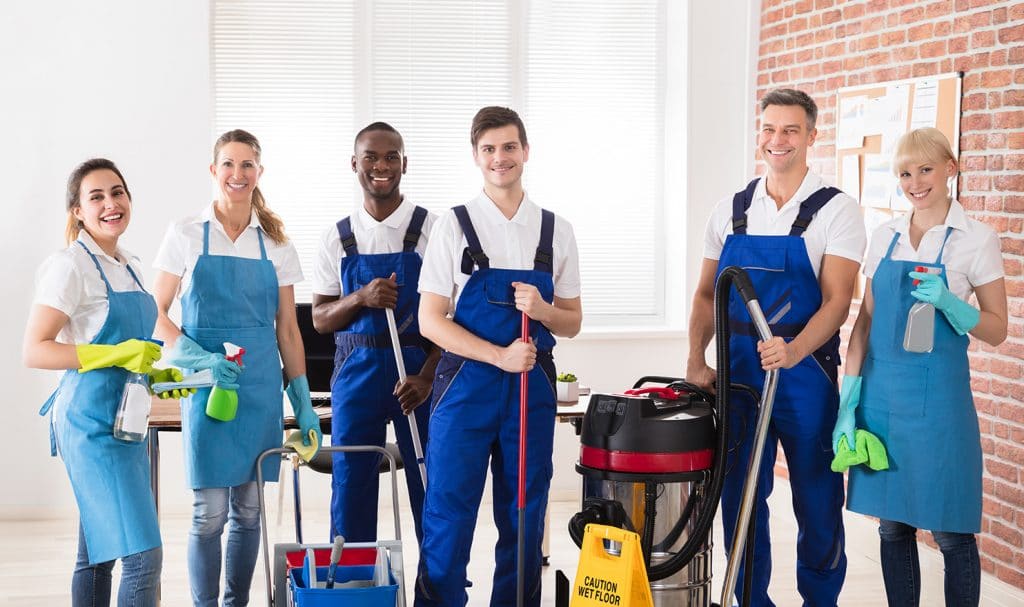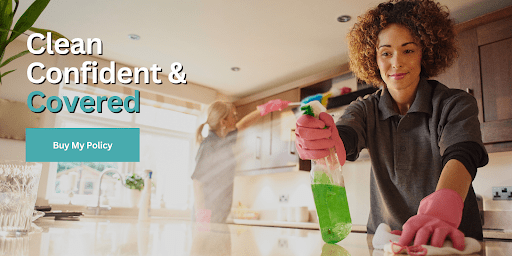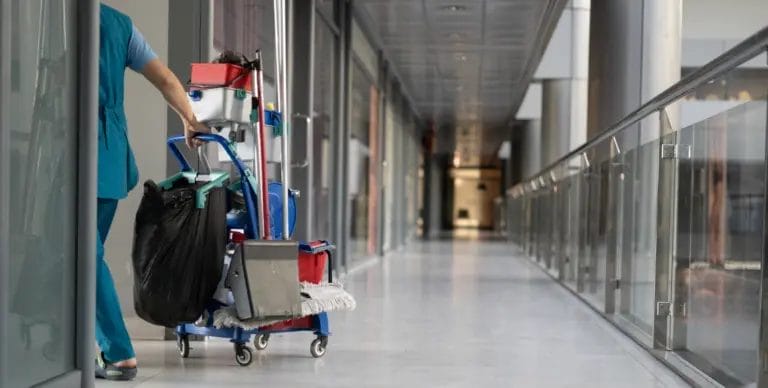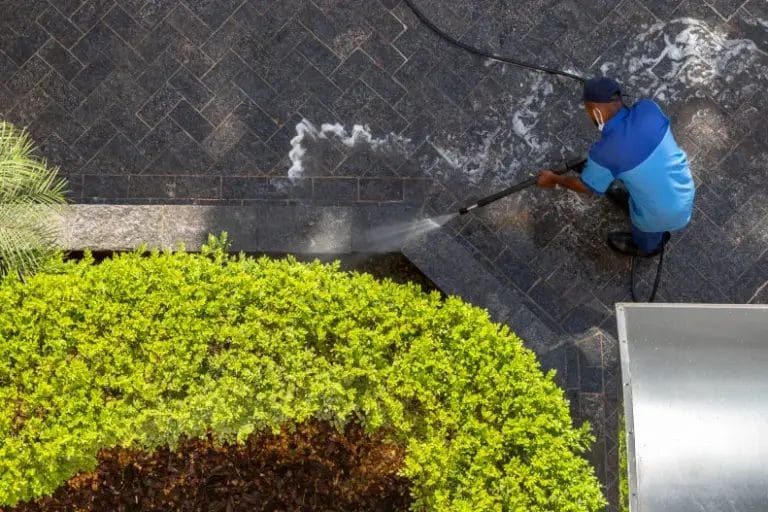Running a cleaning business isn’t just about doing a great job — it’s also about making sure your clients feel secure and confident in your work. But what if something goes wrong? Maybe an employee accidentally breaks something, or a client isn’t happy with the service. That’s where cleaning business insurance and bonding come in.
These protections aren’t just extra paperwork — they’re essential tools to help keep things running smoothly and your clients feeling safe. We know that bonding insurance for cleaning businesses can be a bit confusing, but don’t worry — we’ll guide you through it and make sure you have all you need to set your business up for success.
4 Steps to Get Insured
Getting insured with Insurance Canopy is fast and hassle-free. Follow these simple steps to secure your cleaning business in just minutes.
- Fill out the online form: Provide basic details about your cleaning business, like its name, size, and location.
- Choose your coverage: Select the insurance policies that best fit your needs, from general liability to tools and equipment coverage.
- Review and pay: Confirm your coverage details and complete payment.
- Download your certificate: Instantly access your proof of insurance and start protecting your business.
3 Steps to Get Bonded
Once insured, you can quickly get bonded for full coverage!
- Log into your dashboard: After purchasing insurance, log in to your customer dashboard to access bonding options.
- Select your bond: Choose the coverage amount required for your cleaning business or client contracts.
- Purchase your bond: Complete the payment process and instantly receive your bond confirmation.
What Does Being Bonded Mean?
Being bonded means your cleaning business has purchased a bond — a financial guarantee that protects your clients from theft caused by your business. Here’s how it works:
A bond is an agreement between three parties:
- Your business (the principal)
- A bonding company (the surety)
- Your client (the obligee)
If a client files a valid claim because of a mistake or wrongdoing by your business, the bonding company pays the client. You’ll then reimburse the bonding company for the amount paid.
Being bonded helps build trust with your clients by showing them you’re committed to accountability. Janitorial surety bonds are especially important if you’re working in someone’s home or handling valuable items. Some contracts or clients may even require you to be bonded before they hire you.
Bonding vs Insurance For a Cleaning Business
While insurance and bonding for cleaning businesses often go hand-in-hand, they serve different purposes:
| Aspect | Bonding | Insurance | Purpose | Reassures clients by protecting them from theft by the cleaner. | Shields your business from financial losses due to accidents, property damage, or third-party injuries. |
|---|---|---|
| Coverage | Covers specific issues like theft related to the cleaner’s actions. | Offers broader protection, including general liability, injury claims, and property damage. |
| Who Benefits? | Primarily benefits the client, ensuring their peace of mind. | Primarily benefits your business by reducing financial risks. |
| Requirement | Often required by clients, property managers, or service platforms. | Not always legally required but crucial for protecting your business in unexpected situations. |
| Cost Structure | A one-time fee based on the bond amount and type of work. | Requires regular premium payments based on coverage levels and business risks. |
| Claims Process | Clients file claims against the bond if obligations aren’t met or damage occurs. | Your business files claims for the insurance company to pay for covered incidents. |
| Duration | Usually applies to a specific job or a set period. | Typically renewed annually and adjusted based on your business’s needs. |
Both are essential to protect your business and your clients. Cleaning business insurance and bonding for owners ensure a comprehensive safety net.
Why Is Having Your Cleaning Business Bonded and Insured Needed?
Clients trust you to care for their spaces, but trust alone isn’t always enough. Being bonded and insured helps protect that trust — and your livelihood — when things don’t go as planned. Here are a few real-life scenarios where they make all the difference:
- Bonding
- A client claims something valuable went missing after a cleaning. Your bond kicks in to reimburse the client, keeping your reputation spotless while you sort out the situation.
- Insurance
- A client slips on a freshly cleaned floor and requires medical attention. General liability insurance steps in to cover the expenses, so you’re protected from potential legal troubles.
- While cleaning a luxury home, an employee accidentally breaks an expensive vase. Your insurance swoops in to handle the replacement cost, saving the client relationship.
- If your cleaning equipment is stolen, insurance makes sure that you can replace it promptly — minimizing downtime and keeping your business running smoothly.
- One of your crew gets hurt on the job while lifting heavy cleaning supplies. Workers comp takes care of their medical bills and lost wages, keeping everyone protected.
Check out this blog to learn more about the most common claims cleaning businesses face.
What Types of Cleaning Businesses Need Insurance and Bonding?
No matter your niche, having cleaning business insurance and bonding is a must to protect your business and build client confidence. Here’s how it helps specific types of cleaning businesses:
- Carpet cleaning: Protects against issues like accidental stains or damage to expensive carpets while using your equipment.
- House cleaning: House cleaning insurance and bonding covers everyday accidents, like a shattered vase or cleaning products damaging delicate surfaces.
- Janitorial services: Manages risks in larger spaces, like injuries from wet floors, equipment malfunctions, or damages in high-traffic facilities.
- Maid services: Provides reassurance for clients by covering accidental damages or theft claims when you’re in their personal spaces.
- Window cleaning: Handles higher-risk situations, like cracked windows or injuries from ladder use, ensuring your business stays protected.
- Pressure washing: Covers potential damage to surfaces, water intrusion into structures, or injuries caused by high-pressure equipment.
- Vacation rental cleaning: Protects against accidental property damage, stolen or broken items, and liability concerns,
Tip: Still deciding on the right provider? Take a look at our guide to the best cleaning business insurance and bonding options.
Additional Types of Insurance You May Need
Sometimes, your business needs more than basic protection. Depending on your services, these additional coverages could be game-changers:
- Cyber liability coverage: Protects your business from data breaches or cyberattacks if you store client information digitally or accept online payments.
- Tools and equipment coverage: Also known as inland marine insurance, covers the repair or replacement costs of essential tools that get damaged or stolen.
- Additional insureds: Extends your policy to cover qualified third parties who could be held liable due to your business operations, such as clients, business partners, landlords, or contractors. Often required in cleaning contracts.
- Workers compensation coverage: Ensures financial protection if employees get injured while working on the job.
- Commercial auto coverage: Covers vehicles used for your business, protecting you from accident-related costs or damages.
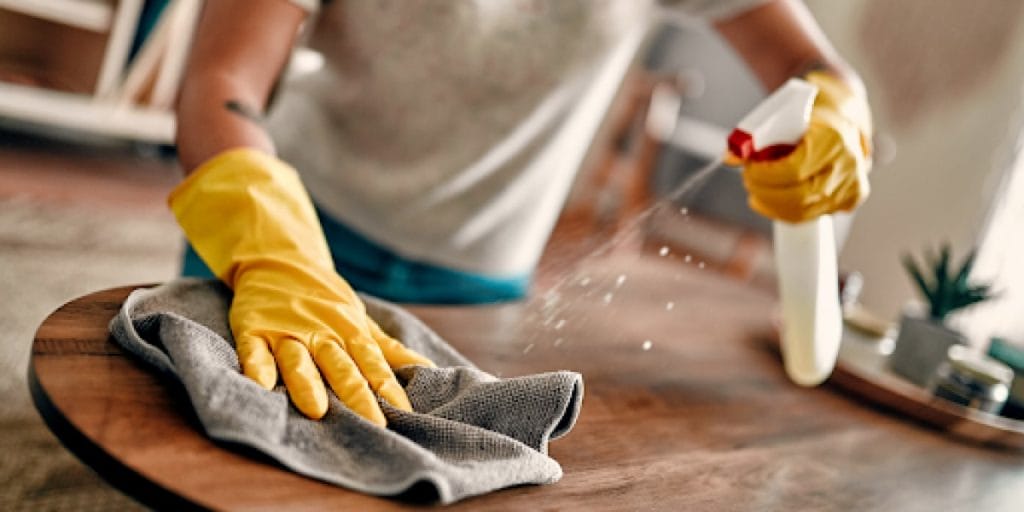
How Much Does Cleaning Business Bonding and Insurance Cost?
Keeping your cleaning business protected doesn’t have to break the bank. Here’s a breakdown of what you can expect to pay for a bond as well as the cost of cleaning business insurance:
- Janitorial bonds: Insurance Canopy’s janitorial bond starts at $131— a smart investment in your company’s long-term success.
- Cleaning business insurance: Our cleaning business insurance starts at just $39 per month or $435 per year. This is well below the national average of $520 annually, giving you reliable coverage for less.
How Your Cost is Calculated
The cost of your cleaning business bonding and insurance premiums is based on key factors that reflect your business’ risks and needs. Insurers typically consider:
- Business size: More employees can mean higher premiums since there’s a greater chance of incidents occurring.
- Coverage amount: Increasing the amount of your bond coverage or insurance limits will also increase your costs, but it also provides more protection.
- Types of coverage: Your insurance premium will go up if you add other types of coverage to protect your business more fully — like tools and equipment, cyber liability, or workers compensation.
- Service type: Specialized services, such as window cleaning or medical facility cleaning, carry higher risks, which can affect your premium.
- Claims history: A clean claims record can help you secure lower premiums. If your business has had claims in the past, insurers could see you as a higher risk.
- Business location: Premiums can vary based on where your business operates. Areas with higher rates of theft or accidents can mean increased costs.
How to Determine How Much Bond Coverage You Need
Figuring out the right bonding insurance for your cleaning business is all about matching your coverage to the type of work you do and the clients you serve. Here’s a quick guide to help:
- Residential cleaning or small offices: If your focus is on homes or smaller office spaces, a bond amount of $10,000 to $25,000 is often sufficient. It covers risks without overpaying for coverage you won’t need.
- Commercial and public spaces: Working in larger commercial buildings or high-traffic facilities? Consider a bond of $50,000 to $100,000 to handle the higher stakes and added liabilities.
Some clients, especially larger corporations or institutions, may require a specific bond amount as part of their contract terms. So, always check with new clients to ensure you meet their requirements.
By understanding your business’s scope and client needs, you can select a bond amount that protects your clients while boosting your business’s credibility.
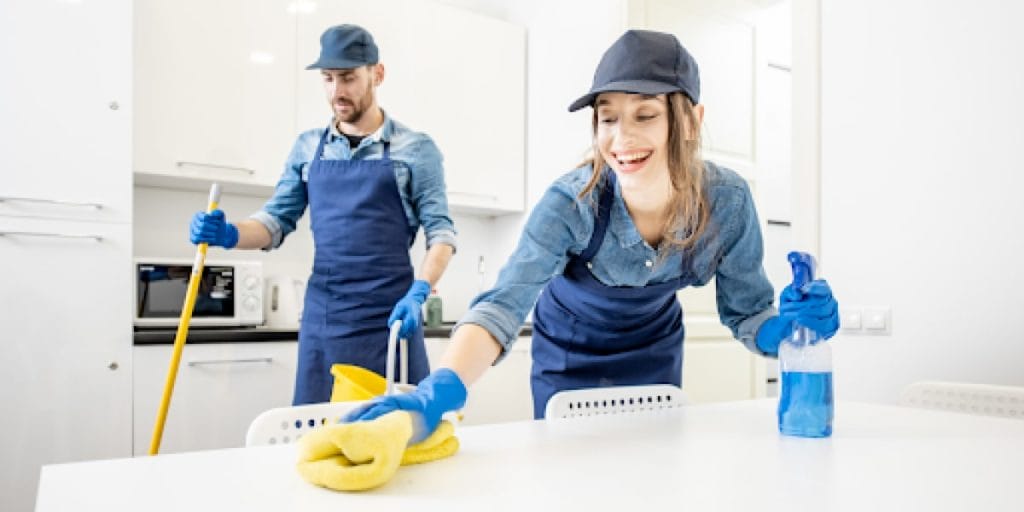
FAQs About Cleaning Business Bonding and Insurance
How do I know if my business needs to be bonded?
If you work in clients’ homes or businesses, being bonded isn’t just a bonus — it’s often expected. Many commercial contracts require it, and it can be the deciding factor for clients choosing your services over competitors.
What does it mean when a housekeeper is bonded?
It means the housekeeper has house cleaning insurance and bonding that protects clients against theft caused during their work. It’s a way to build trust and show accountability.
How much does a bond cost?
Janitorial surety bond costs start as low as $131 per year at Insurance Canopy — an affordable way to protect your clients and your reputation.
What’s the difference between being bonded and insured?
Being bonded protects your clients from losses like theft while being insured protects your business from risks like accidents or property damage. Both work together to keep you covered!
What’s the difference between filing a claim for a bond vs insurance?
Filing a claim for a bond and filing a claim for insurance are two different processes. When you file a claim on a bond, it’s usually because a client has suffered a financial loss due to your actions or your employee’s actions (like theft). The bonding company pays the client, and you’re responsible for reimbursing them.
On the other hand, filing an insurance claim helps protect your business from things like accidents, property damage, or lawsuits. In this case, your insurance company covers the costs, and you don’t need to repay them unless your policy has a deductible.
Got more questions? Find quick answers in our cleaning business FAQs!
Tip: For a deeper dive into potential pitfalls, here are common legal red flags that could derail your cleaning business.
Get Bonded and Insured With Insurance Canopy!
Taking the time to get your cleaning business bonded and insured shows your clients that you value their trust and your well-earned reputation. So, whether you’re dealing with accidents, theft, or just the unpredictability of running a business, you know that you’re ready for whatever comes your way.
Ready to get started? Secure your cleaning business with the right insurance and bonding coverage with Insurance Canopy — fast, simple, and affordable. Get covered today!

